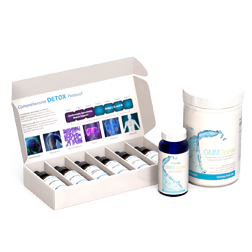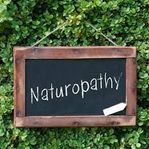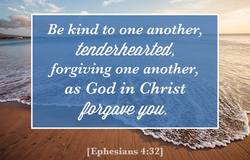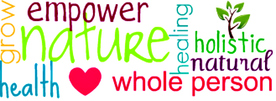Health Tips, Thoughts and Inspirations
The content of this blog will vary, dependent on the topic I feel led to share with you. My prayer is that it will be a blessing to those who choose to read it.
 Greetings! It has been a long time since I have written a blog here. I tend to write when the subject that is on my heart is too long for a Facebook post, or it just seems like the time to do so. The past few weeks, I have been drawn to do a study on the book of Proverbs. This is known as the wisdom of Solomon, which was bestowed upon him by the Lord. When God asked him what he wanted, Solomon didn't ask for riches. He asked for wisdom, and the Lord granted his request. If you know the history of Solomon, he apparently didn't always make the wisest choices in his later years, but he did have a lot of godly wisdom that is still timely today, and always will be, regardless of what the world may say. In the field of holistic health, we pride ourselves on focusing on the whole person that is before us. We do not see only the physical or a symptom or disease. The idea is to address physical health along with the mental, emotional, and spiritual areas of life because ALL are intertwined. While studying the book of Proverbs, I have been convicted of the fact that when I talk with clients or people at workshops, I stress the physical along with a bit of mental and emotional. Do you see what's missing? I am leaving out the most important part! I think it is because the other areas are perhaps more acceptable to talk about, more easily received. This is not an excuse! I have not been doing all that I am called to do as a disciple of Christ! Time and time again, Proverbs states that meditating on the Word of God brings health and life to our flesh. He doesn't say it once or twice; it is SEVERAL times. This means it is something we should pay attention to. Here are just a few examples: “Let your heart hold fast my words; keep my commandments, and live." (Proverbs 4:4) "Hear, my son, and accept my words, that the years of your life may be many. (Proverbs 4:10) "My son, be attentive to my words; incline your ear to my sayings. Let them not escape from your sight; keep them within your heart. For they are life to those who find them, and healing to all their flesh." Proverbs 4:20-22 Likewise, there are several warnings about what happens when we don't listen to God's Word and go through life doing it our way. The choices we make spiritually effect our health. They will either bring life and healing, or death and destruction. " The fear of the Lord is a fountain of life, that one may turn away from the snares of death." (Proverbs 14:27) "Whoever is slow to anger has great understanding, but he who has a hasty temper exalts folly. A tranquil heart gives life to the flesh, but envy makes the bones rot." (Proverbs 14:29-30) If we choose to live the life that God has intended for us, it will bring healing and health to our bones (and our entire bodies) but we need to choose to live His way, regardless of what our culture may try to influence us to do. Every day, every moment, we make that choice. What will you choose?  My favorite holiday is upon us once again. I look forward to this time with family, hanging out together, and remembering how grateful we are for each other. While the world is often focused on material things, it is a time to take a step back from it all and think about what it most important in our lives. Doing so on a regular basis, and not just on a holiday that happens once a year, can have an amazing effect on your over all health. It will reduce stress, pain, anxiety, depression, and several physical ailments. We are often reading about how to improve our health with proper food, exercise, drinking more water, consuming less caffeine and other healthful changes. However, we are much more than a physical being. We also have a mental/emotional aspect, along with spiritual. It is this last one that often gets the least attention, when it could very well be the most important. In the theory of holistic health, when one part of our lives is suffering, the rest of our health also suffers. We cannot separate them into different compartments that don't touch each other. They are intertwined and closely related. When I focus on the negative things in life, such as current events or personal family challenges, I have noticed that they get BIGGER. This results in one huge pity party, depression, a short fuse, exhaustion, and a feeling of hopelessness. As someone who has struggled with severe depression in the past, I know how deep that pit can get and what a dark place it can be. It is also easy to get back into that pit if I am not careful and vigilant about my thoughts. That's why this verse has become vitally important to me: "Casting down imaginations, and every high thing that exalts itself against the knowledge of God, and bringing into captivity every thought to the obedience of Christ;" (2 Corinthians 10:5) When I focus on this truth and other Scriptures, my heart changes. I am filled with His joy and peace despite what the circumstances may be. In turn, I can be more of the woman He created me to be, rather than letting the enemy ruin my day and consequently affecting everyone around me! I have found that focusing on the Lord and all He's done for me (and it's a LOT!) reduces pain in my body, calms my mind, and creates a joy within that is indescribable. Imagine what happens inside of you with this shift in thinking! Your heart rate slows down, your digestive system can work better since it has more energy available to do its job, sleep is improved...the list can go on and on! Do I do this perfectly? No, of course not. But I thank God that even though I'm not where I need to be yet, I am not where I used to be! My challenge to you is this: What are you thankful for, not only today or in this season. Every single day when you get up in the morning, what can you thank God for? You woke up! You have breath! That's a good place to start! You are loved! Even if it may not seem like you have people in your life that care about you, I can assure you that it isn't true. And if it appears that way at this moment, remember that your Heavenly Father loves you unconditionally. He loves you so much that He sent His Son as an atonement and sacrifice to save us from ourselves so that we can be forgiven. There isn't anything more precious than that. And so, dear friends, my prayer for you is this. "For this reason, because I have heard of your faith in the Lord Jesus and your love toward all the saints, I do not cease to give thanks for you, remembering you in my prayers, that the God of our Lord Jesus Christ, the Father of glory, may give you the Spirit of wisdom and of revelation in the knowledge of him, having the eyes of your hearts enlightened, that you may know what is the hope to which he has called you, what are the riches of his glorious inheritance in the saints, and what is the immeasurable greatness of his power toward us who believe, according to the working of his great might." (Ephesians 1:15-19)  Is it necessary to detoxify your body? This is an issue that comes up as being debatable quite often. What is detox? It is the removal of toxic or harmful elements from a living organism. Modern living exposes the body to a wide array of potential toxins in the air we breath, the food we eat, and even the hygiene products we use! It is true that the body is designed to rid itself of harmful elements, but it cannot always do this completely. This is partly due to the overload we put on and in ourselves, along with medications and immunizations that can also add to our already taxed bodies. Americans are experiencing a greater toxic burden than ever seen before, which is nearly impossible for the body to keep ahead of. Some of the symptoms of toxicity include: headaches, fatigue, weight gain, chronic illness, depression, aches and pains, anxiety, sleep problems, autoimmunity, frequent colds and flus, skin rashes/acne, mental fog, infertility, and many signs of chronic illnesses. Although I try to live a clean, healthy lifestyle, my body still gets over loaded with things that do not belong in it! I admit that I do not eat perfectly, and we are exposed to many chemicals in our environment everyday, some of which we cannot control. As a preventative, I like to incorporate a full body detox into my life every spring and fall. Just as some people do spring and fall housecleaning, it is important to clean out the "house" that you live in - your body! It's the only one you have! One of the gentlest and most effective detox products I have found is made by the DesBio company. It is a COMPLETE and TOTAL body cleanse, rather than just a specific organ, supported by homeopathics to help the body work through the process. While some detoxification programs can be too harsh, I have found this system to be thorough with minimum difficulties. A person may experience some discomforts, but in my experience, it is doable! Knowing what to expect and how to deal with it as it comes is a huge asset. These discomforts also let you know that you are getting rid of toxins, which is a great relief to your body! Anyone who is interested in learning more about the detoxing process and if this is right for you can contact me. I would be happy to discuss this with you! And if you decide that you are ready to go to the next level of wellness and cleaning out the toxins, I will walk you through it and be a support to answer questions and concerns. "If you don't take care of your body, where will you live?"  Have you ever listened to how you talk to yourself? This may seem like a ridiculous thing to consider, but it is important to pay attention to our thoughts and self-talk. Would you say the same things to your friends as you say about yourself? If you are like me, doing such a thing would soon result in very few (if any) friends! Chances are, your family wouldn't want to hang around you either. If we wouldn't talk to people we love and care about this way, why do we think it's acceptable to do it to ourselves? It's time to "think about the things we think about," and decide if they are serving us well or causing us harm. It seems this is more prevalent among women, although I'm sure men are not immune from it either. Whether we are young, old, or somewhere in-between, we can easily find physical elements that we are not happy with. Perhaps, like me, you look back at old pictures and think, I wish I was that weight again, I wish I could still fit into that size outfit (which is still in the closet), I wish, I wish, I wish. Do we think we would be happier, more content, life would be perfect, if we looked a certain way? The media would like us to think so. Advertising is notorious for featuring "picture perfect" people, which if we actually knew them, we would find out the pictures are edited and their lives are far from ideal. As if the media wasn't bad enough, we now have social media, where we can portray ourselves and whatever portions of our lives we are willing for others to see. We can easily share all the best moments, giving the impression that life is wonderful and we have it all together. Reality is usually a different story! However, I don't believe it is wise to share our personal lives and issues on such a public platform either! When it comes to our physical body/appearance, most of us need to have a new frame of mind. The worst thing we can do in any area of our lives is compare ourselves to others. It is always detrimental! We will either end up feeling unworthy, hopeless, and not good enough, or superior and prideful. Neither of these is healthy. Most people keep a daily inner conversation of our imperfections and what we "could" do if we didn't have them. There is a high price for this, keeping us from the life we were meant to live. It will keep us in bondage, preventing us from living in the joy and peace that our Creator has for us. What if, when those negative thoughts come, we started replacing them with truthful, positive thoughts? The most powerful and effective way for me to do this is to begin with what God says about me. Does He look at me and say, "oh, I see too much pudge in that middle-aged stomach of yours. And those thighs! Even your calves are huge! You shouldn't buy that...it doesn't hide your gut." No! Of course not! We have a loving, kind, Heavenly Father, who knew us before we were born and knit us in our mother's womb! All of our days were known to Him before we were known to anyone on this Earth! "For you formed my inward parts; you knitted me together in my mother’s womb. I praise you, for I am fearfully and wonderfully made. Wonderful are your works; my soul knows it very well." (Psalm 139:13-14) Along with trading the lies of society (and our inner dialogue) for the Truth of God's Word, we can start appreciating all that our bodies are capable of. We have amazing and complicated structures! If you are reading this, you are obviously breathing and your heart is pumping and circulating blood. Do you have to consciously think about any of these things? I certainly hope not! What are the different ways you are able to move? Can you walk, bend, use your hands, your mind? Can you see and/or hear life around you? Were you able to get out of bed this morning, eat a meal, shower, go to work, help someone, serve your family or friends? Granted, many of us may have different limitations, but what CAN you do on a regular basis? One of my favorite things to do is go for a walk early in the morning. It is peaceful, quiet, and beautiful, The birds are singing, the sky is colorful, and everything is green this time of year. It is a wonderful way to appreciate what my body can do! I may walk faster to get my heart rate up and improve my cardio health, or I might just take it all in and spend the time in prayer, thanking God for everything I am seeing around me, that I can enjoy it, appreciate it, and spend time with Him while exercising and taking care of what He has given me. Am I hoping to lose weight at the same time? Honestly, yes that is a part of it. But I also need to do this for my mental, emotional and spiritual health. While we should accept what our body looks like ALL of the time, we can also take care of it in a responsible way in order to have the energy and stamina to do what we've been called to do in this life. There have been times in my life when I couldn't do the simplest things, like go for a walk. I was having trouble moving at all!! Did I think about my weight or size of my thighs at that point? NO! I just wanted to be able to move with agility and quickly like I had before! We take the everyday things for granted until we can no longer do them. Anyone who has had a health crisis can relate to this, whether it was short or long term. Pay attention to all the little things you can do every day, and be amazed at how easy they may be for you. Your body is a beautiful creation, just as it is! The truth is, no "body" is perfect. Every single one has imperfections in one way or another. That means that imperfections are normal! We should actually expect them and then accept them. Think about this: when your time on this earth is through, how do you want to be remembered? What do you want people to say? That you had a washboard stomach and sculpted thighs? That you wore a size ____? Or would you rather be remembered for how you loved others? The joy and compassion you had for your fellow man? The passion with which you lived your life, making the best use of every moment with family and friends? Did you LIVE? Or did you spend hours and hours worried about how you looked in your jeans, the lines forming around your eyes, the curves that weren't where you thought they should be, always concerned about a bad hair day? Try a bit of self-reflection. Write down what you would really like said about your life, If you could let go of the self-hate and self-rejection, (because that's what hating our body is), what would you do? It might be the spark you need to start thinking about yourself differently.  What is a naturopath? It is a term that hasn't been heard very often in our current culture, but the naturopath has been around as far back as the early 1800's in the Western World. In fact, naturopathy was the earliest known healing system, with records of kelp being used for thyroid health by the Chinese 3,000 years ago! Various other cultures (Egyptians, Hebrews, Greeks, Native Americans, etc) have used natural remedies for thousands of years. Naturopathy looks at the health of the whole person, believing that the body can heal itself if it is given the right tools. According to Benedict Lust, the U.S. father of Naturopathy, it is "a distinct school of healing, employing the beneficent agency of Nature's forces of water, air, sunlight, earth power, electricity, magnetism, exercise, rest, proper diet, various kinds of mechanical treatment, and mental and moral science." Dr. J.E. Cummins also gives a brief definition: "Naturopathy is the science, art and philosophy of adjusting the framework, correcting the mental influences, and supplying the body with its needed elements." The naturopath trusts that the natural processes within the body want it to heal. This is addressed through several means, including natural whole herbs, natural vitamins in foods, water, breathing clean air, avoidance of toxins, and rest. The goal is always to identify the cause and support its healing, with the rest improving as a result. Another strong belief of naturopathy is prevention. It is always better to be on the offensive rather than the defensive when it comes to our health. Heading off small or potential problems is much easier than addressing a health crisis. By identifying the cause of problems, eliminating toxins, and making recommendations to deal with deficiencies, the body's own natural healing abilities will be stimulated. A naturopath and the modalities encouraged do not cure. They give the body the tools it needs so that it can "cure" itself. It is also recognized there is not a "one size fits all" recommendation for specific challenges. The whole person must be looked at - body, mind, spirit - with the best suggestions for that individual being given. For the person seeking health through natural methods, it requires taking responsibility for ourselves, our lives, our choices. In most cases, this will result in needing to make some lifestyle changes. While some of these changes may seem difficult at first, the end result can be more energy, a better overall mental and emotional state, a new awareness of which choices add vitality, along with knowledge of the choices we make that damage us in various aspects of our lives. It's empowering to take control of your health! As a naturopath, my prayer is that I will be allowed to help others to be the best, healthiest version of themselves that they can be so that they can live the abundant life our Creator intended. If you are ready to experience the world of natural health, contact me for more information. I would be honored to assist you in any way that I possibly can! Source: Combining Old and New Naturopathy for the 21st Century by Robert J. Thiel, PhD  My favorite holiday is upon us - Thanksgiving. As of yet, it isn't as commercialized as some are. In fact, it's often overlooked, especially now when stores are no longer waiting for Black Friday, but opening on Thanksgiving Day and Christmas decorations are everywhere by November 1. My daughter-in-law, who is from the Philippines, asked what we do on this day. "Eat" was the response she got. No, that's not what it's about. At least, not for me. It's easy to be thankful when things in life are going well, but what about when it seems that everything is falling apart? I look back, not only on the past year, but the years before. Like many of you, our family has been through many difficult times. I admit that in the midst of all these, being thankful wasn't always the easiest thing to think about. In some of them, I was angry, distraught, and to the complete end of myself. And yet, God brought people into my life, some known and some complete strangers, who spoke to me, lifted me up, prayed for me and my family, and showed us the love of Christ. Suddenly, I still had something to be thankful for in the midst of heartache because of these precious people. Should we take account of our lives and practice thankfulness only once a year? Or is there more to this than a one day holiday? Studies show that having a spirit/heart of thankfulness has a positive effect on our physical, emotional, and mental health. It can be considered a part of our mental health AND our spiritual health. Remember that all these aspects of our lives are intertwined. One is not separate from another. How does this effect your health? "Happy people live up to 10 years longer than unhappy people, and optimists have a 77% lower risk of heart disease than pessimists." Does this attitude happen without any effort? Some people are definitely more joyful than others. If you think of those around you, I'm sure you can think of those who are on both ends of the spectrum. Which type are you more likely to want to be around? That may seem like an obvious question, but we have often heard the old saying "misery loves company." Either way, one feeds off the other. If we surround ourselves with positive people, it will impact how we look at life. The opposite is also true. "But I am surrounded with crabby, negative people that I can't escape from! They're always complaining about life, work, their spouse, their kids, the in-laws....the list goes on and on. I don't have the option of being around someone with a thankful heart!" There is a couple of answers to that dilemma. When you can, make time for some space away from it. And other....Be one! Be the thankful person! How do we get there? First take a long, hard look at yourself. What are your thoughts like? What do your words reflect? Begin with the symptoms of an unthankful heart:
In Romans 12:2, the Scripture talks about renewing our mind. What we put into our minds, through what we read, watch on TV, the music we listen to, what we look at on the internet and social media - each one of these makes a difference. We need to "think about what we are thinking about." If we are dwelling on negative thoughts, our problems, people that we are upset with, the list goes on and on - we will not have a thankful heart. It will be a clouded, down-trodden, "woe is me" darkness that weighs us down. I, for one, don't want to live there. We will miss out on the joy of life. Ask yourself, "What have I been thinking about this past week/day/hour?" If we want to see a change, we have to change the way we think. What are the blessings in your life? Do you have a roof over your head? A safe and warm place to sleep? Clothes to wear? Food to eat? People you love and who love you? Even if you can answer "yes" to only one of these questions, you have more than a large percentage of the people in this world! There are many who would gladly exchange places with you! To start out on the right track, begin and end each day reminding yourself of at least one thing you can be thankful for. Write it down and look back at your list after a week of doing this. Post them where you can see them. You will be surprised at how blessed you really are! May your Thanksgiving and all the days thereafter be filled with love, joy, peace and a grateful heart! From our most precious blessings....to yours. Sources: http://www.greatbiblestudy.com/thankful_heart3.php http://www.mindbodygreen.com/0-11819/scientific-proof-that-being-thankful-improves-your-health.html  Forgiveness. We hear about it, we know it's what we need to do, but do we apply it to our lives? It can be a difficult thing to do, especially when we have been hurt, or even worse, when someone we love has been hurt. You may have heard it said that when we forgive someone, the person we set free is ourselves. The one we are angry with may not even know how upset we are and it certainly doesn't imprison them nearly as much as it imprisons us. Hanging onto our anger and pain will eventually effect our health. It also effects those around us as it continues to turn into a root of bitterness. "Unforgiveness is classified in medical books as a disease. According to Dr. Steven Standiford, chief of surgery at the Cancer Treatment Centers of America, refusing to forgive makes people sick and keeps them that way." He goes on to explain that 61% of their cancer patients have forgiveness issues. Where do we start if we know that this is an issue that needs to be dealt with? Of course, that is the first step - recognizing that it is a problem that needs to be met head on. According to Jesus, we are to forgive because WE have been forgiven. This statement comes from the One who said, "Father, forgive them. They know not what they do" as He hung on the cross in pain that we can't begin to imagine. In Luke 6:37-38, Jesus says “Judge not, and you will not be judged; condemn not, and you will not be condemned; forgive, and you will be forgiven; give, and it will be given to you. Good measure, pressed down, shaken together, running over, will be put into your lap. For with the measure you use it will be measured back to you.” In a parallel passage in Matthew 6:14-15, in response to the disciples asking him how they should pray, Jesus emphasizes, "For if you forgive others their trespasses, your heavenly Father will also forgive you, but if you do not forgive others their trespasses, neither will your Father forgive your trespasses." There are many more Scriptures that could be cited here, and they all point to the same thing. Forgiving is a command that is for our own well-being, that we may be a blessing. Unforgiveness is detrimental to our physical, emotional, mental and spiritual health, which I approach from a Biblical perspective since that is the world view I am living. However, if that's not where you are in life, this is still an applicable truth that has been proven in the medical community. If this topic has created a stir in your heart, I pray you will consider taking that first step towards the freedom of forgiveness. At a complete loss as to where to begin? You may find this teaching by Joyce Meyer to be helpful, who forgave her father for abusing her throughout her childhood. http://www.joycemeyer.org/articles/ea.aspx?article=the_poison_of_unforgiveness May you be blessed and set free! Sources: (http://www1.cbn.com/cbnnews/healthscience/2015/June/Healthcares-Antidote-Cash-In-on-a-Cash-Only-Plan) Holy Bible, ESV Are you experiencing...
 The Pokemon Go craze has created quite a stir. People are chasing these little fantasy creatures wherever their phone takes them, including in harms way. Just search the most recent news and you will find one story after another about people getting injured or KILLED while pursuing yet another Pokemon. It is a bit terrifying to me. I admit that I am one of those people that does not understand the fascination with this app, especially to the extremes it has rapidly evolved. And then the other night it hit me. Who am I to be spouting about the stupidity of all this? How much time am I spending on my phone looking at Facebook, Twitter, news feeds, emails, text messages, the weather app, internet, or anything else I click on out of boredom (or avoiding work)? Conviction can be a painful thing... If our ancestors could see our current society, they would be shocked and dare I say, appalled. We are busier than ever, with all our modern "conveniences." We claim that we are more connected to people than ever because we can text, message, call from anywhere, scroll the social media. Yes, we can do all those things, but is it healthy? Are we truly "connected" to anyone? Is this a true, healthy connection or are we ignoring those who are physically present with us? What would happen if we finally looked up from our phones one day and realized that our loved ones are gone? Precious time that could have been spent in face to face communication, complete with the important element of non-verbals which tell us what a person is truly feeling, has been replaced with a cyber reality. A reality that in fact is, for the lack of a better word, not real. I fear that we have forgotten what healthy communication looks like and definitely forgotten how to put it into action. We were out for supper at a local pub this past weekend with my daughter and her boyfriend. There was a family at the table next to us, obviously celebrating a birthday complete with 3 generations of loved ones. My daughter says to me, "Mom, look." Over half the family was looking down at their phones and not interacting with each other. Unfortunately, this is not a rare scene. Everywhere you go, people who are physically together are not "together." Don't get me wrong. I am not condemning. I have been guilty of this more than I care to admit. There have been more wasted moments since acquiring a Smart Phone than probably any other time in my life. Moments that I can't get back. So what do we do going forward? Here are some suggestions from experts as listed in an article on WebMD:
Source: http://www.webmd.com/balance/guide/addicted-your-smartphone-what-to-do?page=4
 I am often asked about holistic health and how it differs from mainline medicine. Naturopathy was the earliest known healing system. Before surgery and pharmaceuticals, foods, water and whole herbs were used by many cultures for a wide range of problems. Hippocrates, the father of medicine, was likely the best known of the older naturopathic scientists. His best contribution may be the principle of "first do no harm." Naturopaths and holistic health practitioners believe in prevention and also in the power of the body to heal itself, given the right tools. We believe that by identifying the cause and supporting it's healing, everything else will improve. The body can heal itself of just about anything if it is clear of toxins and given the proper nutrition, rest, mental outlook and natural stimulation. The naturopath trusts that the natural processes within the body want it to heal. The goal is to identify the cause of problems, eliminate toxins, recommend substances to deal with deficiencies, and stimulate the body's own natural healing abilities. It is always taken into account that everyone is different and that not everyone with the same problem will benefit with the same solution. Natural healing is not quackery or a cult. "It is the science of nature, the biological way of living right." (Dr. Benedict Lust) It is a mixture of modalities intended to encourage the body to heal itself as it was created to do, with attention also being given to the mind and spirit. To take this path means a person must take responsibility for their own health. This is empowering to some, yet daunting to others. It takes time, work, and determination to change habits, including food, water consumption, sleeping, exercise, and reducing toxins along with adding in supplements and/or herbs if necessary. However, getting to the root of health issues will mean an overall healthier body, mind and spirit, which will be better equipped to fight off disease, infections, and anything else that comes on life's journey. If you would like to know more about how to address your health through natural means, contact me here or on my Facebook page. I would be honored to help you in any way that I can. Sources: Naturopathy for the 21st Century, Robert J. Thiel,, PhD |
AuthorWelcome! My name is Tami Gabrielson. I help women with IBS find relief through a whole foods approach, simple lifestyle changes, and supplementation. I am a Board Certified Naturopath, Digestive Health Professional, Certified Health Coach and a Certified Natural Health Professional. I am passionate about holistic health which involves nurturing body, mind and spirit, each of which are intricately intertwined with each other. Archives
December 2023
CategoriesUA-62084947-1
|

Restoring Wellness
Tami Gabrielson Board Certified Naturopath Digestive Health Professional Certified Health Coach Certified Natural Health Professional |
tamig@restoringwellness.org
320-841-0225 |
